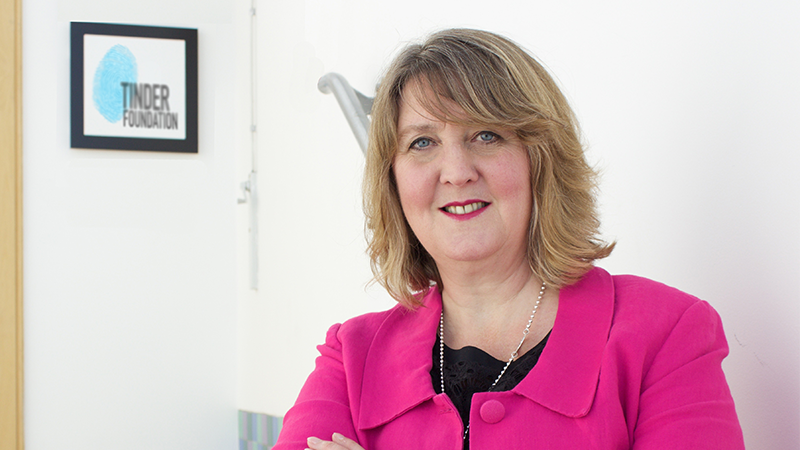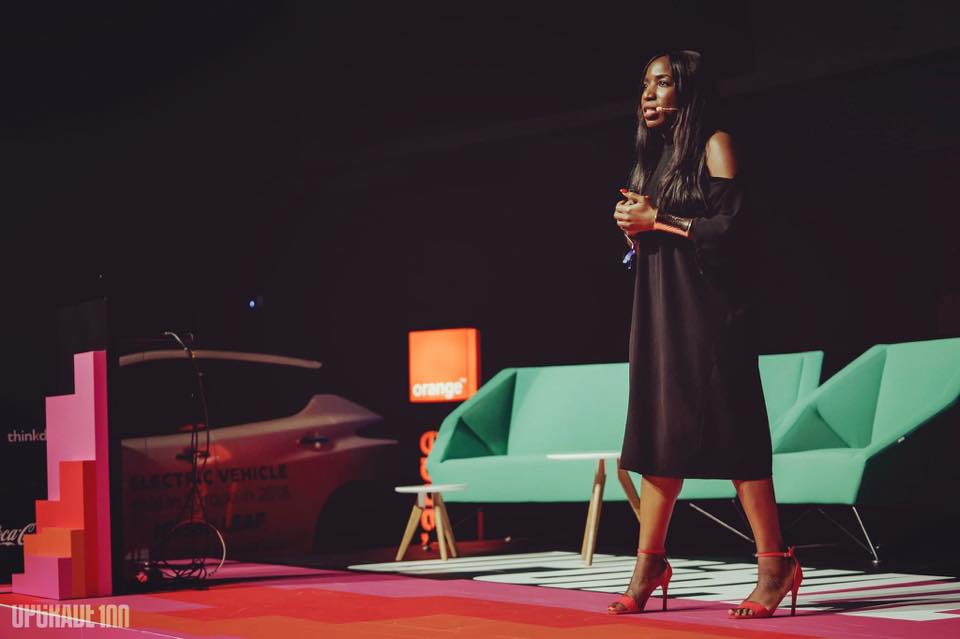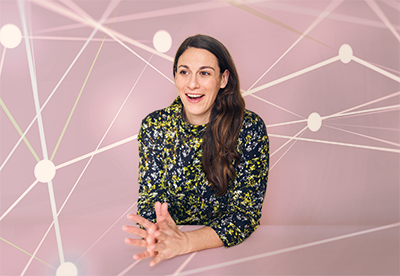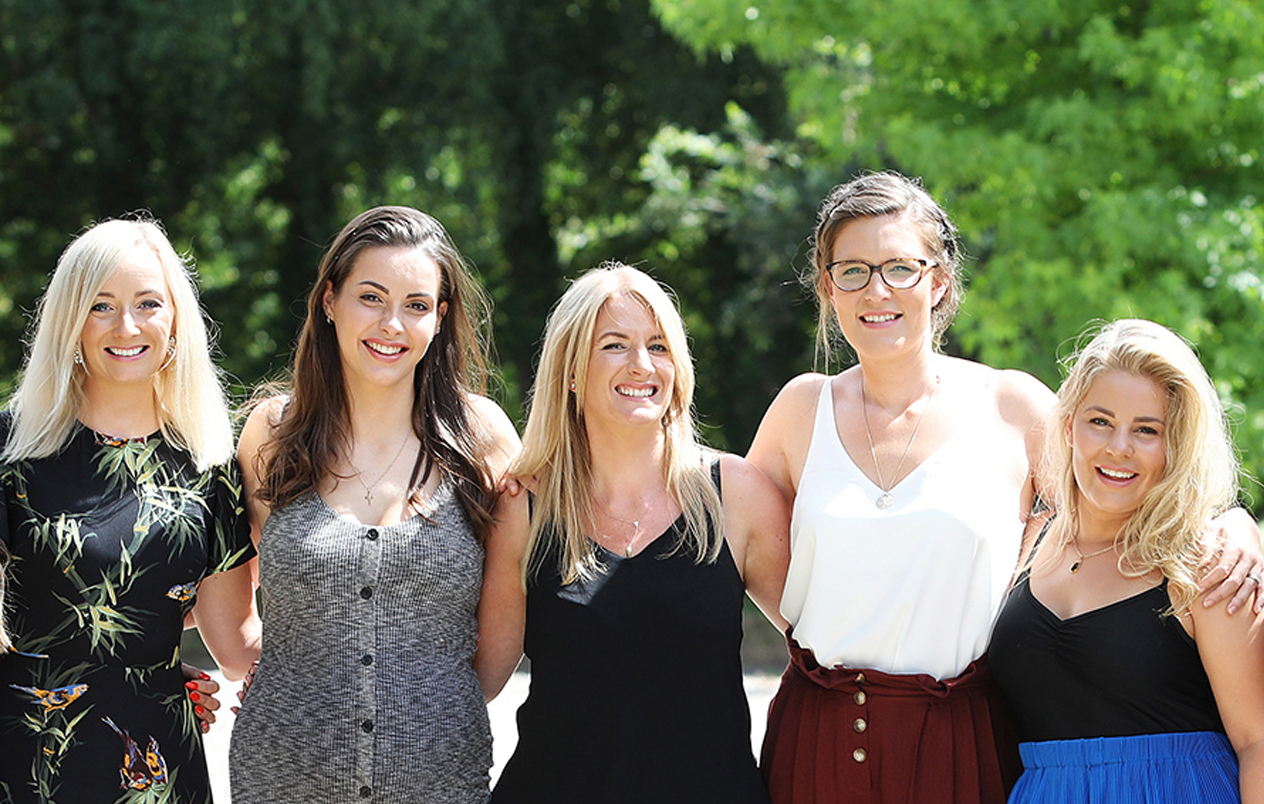International Women's Day 2021: Choose to Challenge
08 March 2021
By Roe
“We need to understand that if we all work on inclusion together, it’s going to be faster, broader, better, and more thorough than anything we can do on our own.”
– Former Reddit CEO and Current Co-Founder of Project Include, Ellen Pao.
[Featured image credit: NY Times]
Often regarded as a male-dominated space, in recent times a plethora of projects have been set up to encourage more female presence in the tech and digital industries. Programmes such as the “Made With Code” campaign and partnerships with Girls Who Code and Black Girls Code are helping to inspire girls to take part in STEM education.
In 2015, Google launched the Women Techmakers initiative which was designed to empower women in tech and provide them with community and resources. Unconscious bias training has been undertaken by some of Silicon Valley’s top companies and a survey of 1,500 women working in the tech industry found that ‘more than half aged between 18 and 39 reported good opportunities to advance their career’ which suggests changing attitudes within the sector.
However, this is an area that still needs vast improvement. Women only make up 16% of IT professionals, which the WISE campaign for gender balance in science and engineering states has remained stagnant for the last 10 years.
Furthermore, a Tech Nation report revealed that only 19% of the tech workforce are women, whilst black and Hispanic women are just 3% and Asian women 5%. In addition, 40% of women have stated that they have been passed over, with promotions being given to someone of the opposite sex who is less qualified than them.
Another key issue is a lack of female role models leading to young women believing the technology industry is male-dominated and not for them. Only 22% of students can name a famous woman working in technology, whereas 66% can name a famous man in the industry.
This lack of visibility for women in the technology and digital space needs to be addressed as there are many talented women who are changing the face of tech today. By championing the achievements of women in these sectors, particularly those who strive to help others advance their careers, more young women may be encouraged to work in the sector.
Therefore, we want to celebrate some of the incredible work being done by influential women in these sectors and explore how we collectively can choose to challenge gender inequality and forge more inclusive workplaces and career opportunities for all.
Women shaping the tech industry
Abadesi Osunsade

[Image credit: Word of Mouth]
Recently included in the Financial Times list of Top 100 Influential Leaders in Tech and Tech Nation’s 50 most prominent and influential voices, Abadesi Osunsade is the founder and CEO of Hustle Crew. Osunsade and Hustle Crew focus on creating a career advancement community for those underrepresented in tech.
She has held several roles aimed at advancing diversity in tech, including being an advisory board member for Your Startup Your Story (YSYS) and founding NonTechTech which is a mentorship community for non-technical tech enthusiasts.
From working in patriarchal environments, to colleagues who touched Osunsade’s hair ‘because it was so interesting’, to working with counterparts with the same grades as her who were earning 2-3 times more, Osunsade found that the tech world was not an even playing field. There was a gap in the industry that excluded women, people of colour and those from disadvantaged backgrounds. Hustle Crew was born from this.
Osunsade believes that diverse teams excel and that in having a non-diverse workforce, companies miss out on talented individuals. Hustle Crew provides opportunities, mentorship and career insights for underrepresented groups in the UK. Osunsade has created a space where young people of colour can thrive.
In 2016, she published ‘Dream Big, Hustle Hard’, which advises women on careers in the tech industry. She is also the co-host of the podcast ‘Techish’ that was ranked in the top 20 tech list on Apple Podcasts.
Socials: LinkedIn, Twitter, Instagram and Hustle Crew
Helen Milner

[Image credit: Good Things Foundation]
In the wake of Covid-19, pre-existing social inequalities have been highlighted and this includes digital inequalities. According to the Lloyds Consumer Digital Index 2020, 9 million adults in the UK can’t use the internet without help. Helen Milner, founder and CEO of Good Things Foundation, strives to support those who are socially excluded through digital inequality.
Good Things Foundation (formerly the Tinder Foundation) is a non-profit which works within communities to help people gain the support and skills they need to overcome social challenges in the digital world. With the mission statement ‘We want a world where everyone benefits from digital’, Helen and the Good Things Foundation put people at the heart of their work, focusing on what digital technology can do to improve lives.
Helen has over 30 years experience in delivering education to communities about the internet. She has previously worked as a member of the Speaker’s Commission for Digital Democracy and an Advisor in Digital Engagement to the Public Accounts committee. In 2012, she was inducted into the British Interactive Media Association’s Digital Hall of Fame and, in 2015, she was appointed an OBE for services to digital inclusion in the Queen’s Birthday Honours List.
She believes that: ‘technology increases convenience, flexibility and choice for all of us […] technology also creates brand new ideas, creativity, and ways of doing things we never dreamed of.’
Socials: LinkedIn, Twitter, Good Things Foundation
Flavilla Fongang

[Image credit: 3 Colours Rule]
Named among the top 5 most influential women in tech in the UK by Computer Weekly, Flavilla Fongang is a serial entrepreneur. She is the founder and creative brand strategist at 3 Colours Rule, a board member of TechUK, founder of Tech London’s Advocates for Black Women in Tech, as well as the winner of the ‘She’s Mercedes’ businesswoman award by Mercedes Benz.
Born and raised in Paris, Fongang moved to London despite being unable to speak English. Within her first year in the UK, she earned a BA in Economics and Law, a BA in Marketing and Communications and an MA in International Business. She founded 3 Colours Rule in 2008, which is an award-winning branding and neuromarketing agency which works mainly with tech companies to help their content make an impact.
Flavilla Fongang is passionate about diversity, inclusion and providing equal opportunities for future generations. 3 Colours Rule was partially born from Fongang’s desire to help businesses and individuals unleash their potential. Flavilla believes that businesses achieve more when they develop a brand which has a core authentic human purpose and that impacts on societal issues.
As one of the most popular speakers around the world and known for her charm and humour, Fongang also hosts the Tech Brains Talk podcast which gives entrepreneurs and businesses advice and industry insight.
Socials: LinkedIn, Twitter, TLA Black Women in Tech
Carly Kind

[Image credit: The Actuary]
Director of the Ada Lovelace Institute, Carly Kind works to promote public understanding of the impact of AI and data-driven technologies, allowing people to benefit from AI while still protecting their rights and freedoms.
Due to her background in international human rights law, Kind acts as a consultant for UNICEF UK, the European Commission and the European Centre for Not-For-Profit Law, advising on digital rights, data protection and corporate accountability. She was also the Legal Director of Privacy International, which was dedicated to the governance of data and data rights.
Through her work, she has become a leading authority on the possibilities and challenges of AI, how human rights intersect with technology and discussions around issues of digital ethics such as the combatting of ‘fake news’.
In a world where the development of AI can be equally exciting and scary to the public, the work that Kind does educates the public and builds a strong foundation for the continued development of AI technologies within an ethical framework.
Carly herself states that ‘in supporting research […] and public conversation, Ada will work to ensure a future in which AI’s benefits are not only maximised but are equitably distributed, and that its pitfalls and potential harmful consequences are understood and avoided’.
Socials: LinkedIn, Twitter, Ada Lovelace Institute
Changing experiences in the workplace
To delve a little deeper into this topic, we also wanted to speak to women we’ve directly worked with to get their insights on diversity and inclusion in the workplace.
We spoke to Karishma Singapuri, Marketing and Social Content Manager at Making Moves, a commercial property finder based in Shoreditch in close proximity to East London’s Tech City.
Karishma reveals: “I’ve been lucky enough to work with some great women in leadership throughout my time, however looking at the start-up scene there is a definite gender gap. In my experience, certain subjects at school were often seen as male-dominated and discouraged a lot of girls from pursuing them. This, coupled with the lack of female role models in the industry, stunts the growth at the seed.”
However, she also offers her thoughts on how we can champion inclusivity: “Diverse workplaces offer a chance to see different perspectives and find niches in an ever-growing industry. Inclusivity starts with a supportive community of women pulling each other up, and continues with buy-in from everyone.”
We also spoke to Sophie Foyle, Operations & Business Development Director at ADPR, a PR and communications agency, about the power of women-strong workplaces and how best to support women at work, particularly during COVID-19:
“At ADPR we’re a nine-strong team of women, where we’ve worked hard to create a culture of ambition and opportunity that we like to celebrate on every day of the year”.
Sophie continues, “As an employer, we’re flexible and supportive of all the different roles women have – none of which should take away from the other, but rather complement and support the whole of that person.
I think it’s safe to say that many women have struggled particularly hard with lockdown, taking on additional caring responsibilities, as well as home-schooling and working, so this International Women’s Day I’d like us all to celebrate the amazing contribution of women right across the Covid effort”.

Finally, we spoke to Jess Dunbar, a freelance copywriter, about the ways the pandemic might have changed the culture of work for the better:
“For me, equality is about letting women – and men – have an equal choice between building a career in the traditional way, or blending family commitments with meaningful work. Both career paths should be feasible, realistic and rewarding.”
She adds, “This pandemic has put incredible pressure on working mothers who have found themselves juggling their own jobs with educating their children, providing childcare and maintaining a household. At the same time, this has been a period of great unity in the fact that so many men – husbands and fathers – have been actively present and a part of this juggling act.
I hope the past 12 months have shown employers that a culture of presenteeism is outdated and irrelevant and that successful careers can be forged from the kitchen table just as effectively as in the boardroom.”
It was fantastic to speak to Karishma, Sophie and Jess about their thoughts on how workplaces are changing for women, particularly in the context of the Covid-19 pandemic. They have also highlighted some important ways that employers can continue to not just support, but also champion the choices of women in their work.
Choose to challenge: striving for equality and diversity
Whilst the tech industry is still male-dominated, there are many women striving to increase gender and racial diversity and make the technology sector more accessible. Women-only tech groups like the FBomb Breakfast Group are providing a place where women in all industries can meet, lift each other up and discuss their experiences, which in turn reduces the fear of entering a male-dominated workplace.
By valuing the contributions of women and increasing diversity, businesses can benefit from a range of experiences, ideas and talents which will ultimately make the industry stronger.
When researching this topic, we came across a thought-provoking statement. Nicola Anderson, the chief marketing officer at London-based Tech-ed firm MyTutor, stated that: ‘women in tech often won’t apply for a job if they don’t feel they’re 100% qualified or have exactly the right experience, [..] As a result, women end up moving horizontally where their male peers progress.’
Similarly, in an article by Word of Mouth, Abadesi Osunsade is described to have commented that she initially tried to push down her ambitions due to fear. She states that she kept thinking about waiting until she was ready. Even now, she says she is still not ready and she is still learning.
This outlook is important because we are all continually growing and learning. It is natural to experience apprehension – even role models like Osunsade experience it – but she and other women throughout the tech industry prove that challenging the system and following your beliefs can bring about change.
At the same time, it’s important to remember that the responsibility to challenge is not just on women themselves, but also on their peers. As Karishma says, “Inclusivity starts with a supportive community of women pulling each other up, and continues with buy-in from everyone.”
The theme of this International Women’s Day is #ChooseToChallenge: challenge ideas, challenge workplace structures, and even challenge your own fears. I would encourage everyone to look into the work of the women in this article, as well as that of the many other influential women working in the tech and digital sectors. The achievements of women should be championed, not only for International Women’s Day, but every day.
AR.